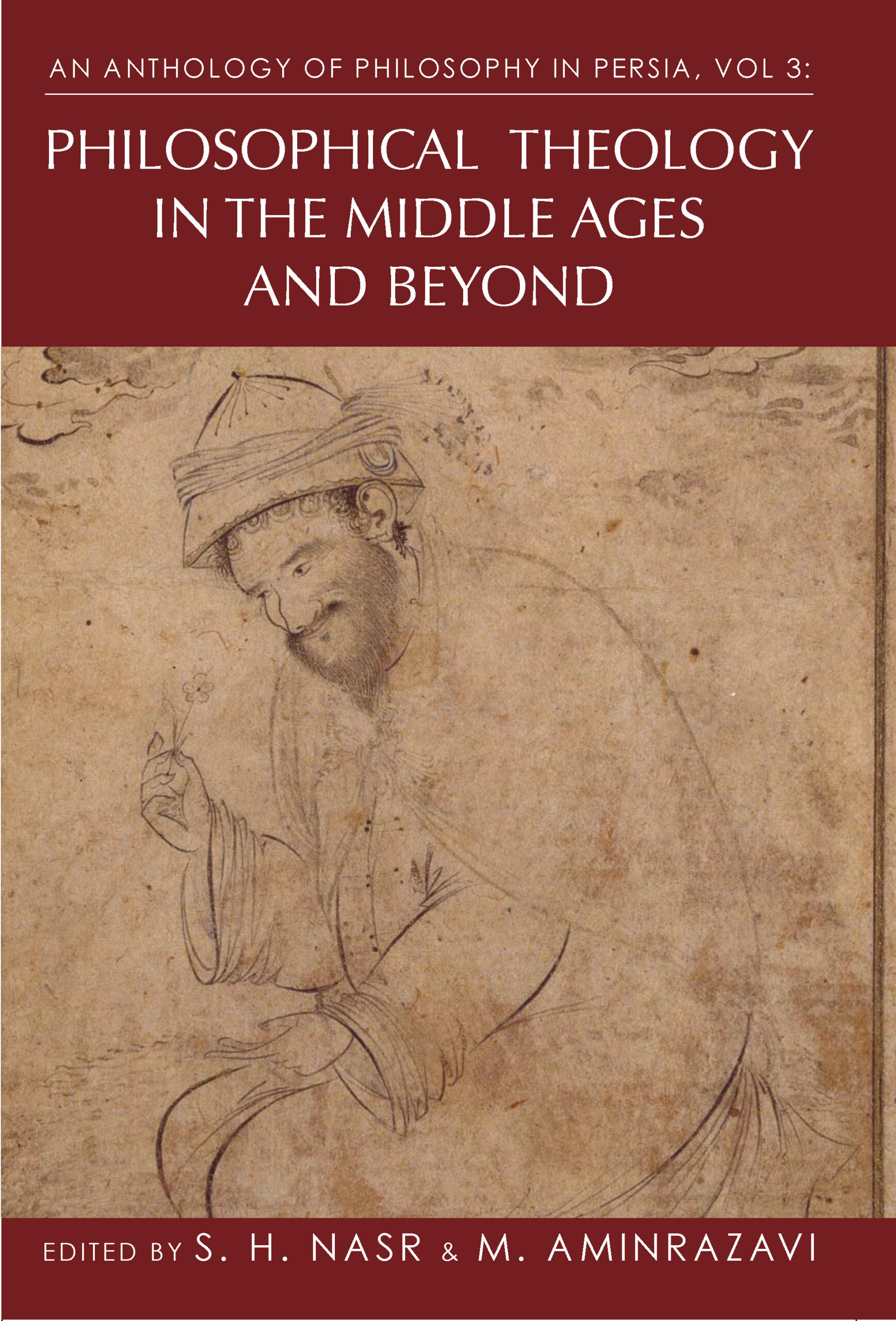The tradition of philosophy in the Persian-speaking world is extraordinarily rich, creative and diverse. This anthology, which is divided into five volumes, aims to communicate something of that richness and diversity. The term ‘philosophy’ is understood to in its widest sense to include theological debate, philosophical Sufism and philosophical hermeneutics (taʾwil). Extending over a period of more than two millennia, and showcasing translations by well-established scholars, the anthology offers full bibliographical references throughout. For anyone interested in exploring, in all their varied manifestations, the fascinating philosophical traditions of Persia, such a wide-ranging and ambitious work will be an indispensable resource.
As Islamic theology developed, many of its schools interacted with the philosophical currents of their day resulting in what is known as philosophical theology, or kalāmFrom Arabic, lit. ‘Speech, discussion, argument’, translated as philosophical theology, refers to theological reflection using rational philosophical argumentation to study and express the content of the faith in a coherent…. No treatment of philosophy in Persia would be complete without the inclusion of some of these writings. Texts from the most significant works of these major Islamic theological schools, both Sunni and Shiʿi, written not only in Arabic but also in Persian, are included in this volume. Among the definitive masters of both schools are many Persians, chief among them al-Ghazzālī and Fakhr al-Dīn Rāzī who feature prominently here. So far as Shiʿi theology is concerned it was from the beginning more philosophically inclined than the earlier schools of Sunni kalām and its development took place almost exclusively within Persia. Selections from Shiʿi philosophical theology in this volume range from the thirteenth century to modern times and include texts available in translation for the first time.
General Introduction, S.H. Nasr
Introductory Analysis, Mehdi Aminrazavi
Part I: Mu‘tazilism
Introduction: S. H. Nasr
Early Muʿtazilism:
Introduction: S.H. Nasr
1. Abu’l-Hudhayl ʿAllāf
Introduction: S.H. Nasr
Selections
Majid Fakhry
2. Ibrāhīm Naẓẓām:
Introduction, S.H. Nasr
Selections
Majid Fakhry
Later Muʿtazilism:
Introduction, M. Aminrazavi
3. Qāḍī ʿAbd al-Jabbār
al-Mughnī (“[The Book] That Makes Others Superfluous”)
Daniel C. Peterson
Part II: Later Sunni Theological Thought
Introduction S. H. Nasr
Early Muʿtazilism:
Introduction, S.H. Nasr
1. Abu’l-Hudhayl ʿAllāf:
Introduction: S.H. Nasr
Selections
Majid Fakhry
2. Ibrāhīm Naẓẓām:
Introduction, S.H. Nasr
Selections
Majid Fakhry
Later Muʿtazilism:
Introduction, M. Aminrazavi
3. Qāḍī ʿAbd al-Jabbār
al-Mughnī (“[The Book] That Makes Others Superfluous”)
Daniel C. Peterson
Part III: Shi‘ite Philosophical Theology
Introduction, S.H. Nasr
1. Naṣīr al-Dīn Ṭūsī
Introduction: S.H. Nasr
Tajrīd al-iʿtiqād (“The Book of Catharsis”)
Majid Fakhry
2. ʿAllāmah Ḥillī
Introduction, M. Aminrazavi
Sharḥ al-tajrīd (“Commentary on the Book of Catharsis”)
Majid Fakhry
3. ʿAbd al-Razzāq Lāhījī
Introduction, S.H. Nasr
Gawhar-i murād (“The Pearl of the Desired”)
Mohammad Faghfoori
Shawāriq (“Orientations”)
Maria Dakake
4. Ḥasan ibn ʿAbd al-Razzāq Lāhījī
Majmūʿa-yi rasāʾil fārsī
Mohammad Faghfoori
5. Mullā Mahdī Narāqī
Introduction: M. Aminrazavi
Qurrat al-ʿuyūn (“The Delight of the Eyes”)
Joseph Lumbard
Index
Seyyed Hossein Nasr is University Professor of Islamic Studies at George Washington University. He is the author of over 300 articles and thirty books, and has lectured widely on Islamic philosophy.
Mehdi Aminrazavi is the author and editor of numerous books and articles, and is currently Professor of Philosophy and Religion at the University of Mary Washington, where he directs the Middle Eastern Studies Program.

